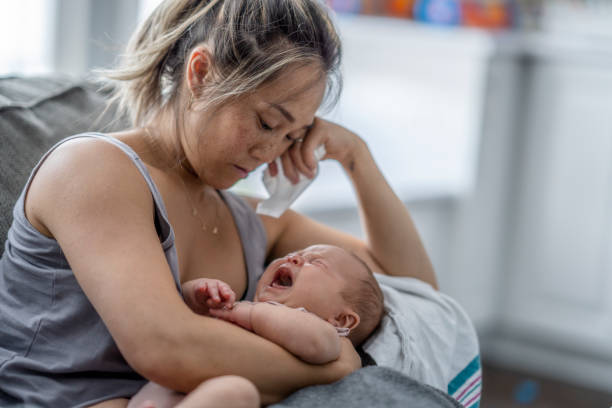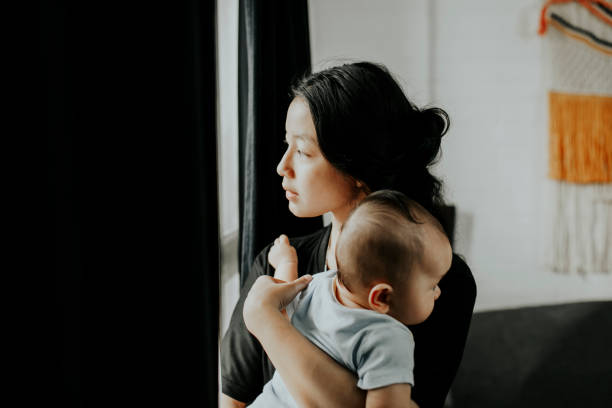Postpartum depression (PPD) is a serious mental health condition that affects many new mothers, including those in Singapore. It can feel overwhelming, but there are many resources and support networks available to help. Understanding postpartum depression and knowing where to turn for help can make a significant difference in a mother’s recovery.
In this article, we’ll explore the symptoms, resources, and support systems available in Singapore to help mothers dealing with postpartum depression.
Understanding Postpartum Depression
Postpartum depression is more than the typical “baby blues” that many new mothers experience after childbirth. While it’s common for new mothers to feel anxious, irritable, or experience mood swings due to hormonal changes and the stress of caring for a newborn, these feelings usually subside within a couple of weeks. Postpartum depression, however, is more severe and can last for months or even longer if left untreated.
It’s important to recognise the signs of postpartum depression early so that help can be sought as soon as possible. Some common symptoms include:
- Persistent sadness or low mood: If the mother feels down or hopeless most of the time for more than two weeks, it could be a sign of postpartum depression.
- Lack of energy or motivation: Mothers with postpartum depression often feel drained and unable to care for themselves or their babies.
- Difficulty bonding with the baby: Some mothers feel emotionally detached from their baby, which can lead to feelings of guilt and shame.
- Irritability or anger: PPD can make new mothers more irritable and prone to anger, even at minor issues.
- Loss of interest in activities: Things that once brought joy may no longer be enjoyable, which is a hallmark sign of depression.

Image from iStock
- Changes in appetite or sleep patterns: Mothers might overeat or lose their appetite, and they might struggle to sleep even when their baby is resting.
- Thoughts of self-harm or harming the baby: In severe cases, mothers may have intrusive thoughts about harming themselves or their baby, which is a medical emergency that requires immediate help.
If these symptoms sound familiar, it’s important to seek professional help as soon as possible. Postpartum depression is treatable, and early intervention can prevent it from getting worse.
The Importance of Early Intervention
Early intervention is crucial for mothers with postpartum depression. Without timely help, PPD can negatively impact not only the mother’s mental health but also the baby’s development and the overall family dynamic. Babies whose mothers suffer from untreated postpartum depression may experience difficulties with emotional and cognitive development. They might also have trouble forming secure attachments, which are vital for a child’s social and emotional growth.
Support Systems in Singapore
Singapore provides a range of support services for mothers dealing with postpartum depression. The country recognises the importance of maternal mental health and has made it easier for mothers to access the necessary resources. From healthcare providers to community-based support, mothers in Singapore have various options for managing postpartum depression.
1. Healthcare Providers and Medical Support
The first step for mothers experiencing postpartum depression should be to consult their healthcare provider. This could be a general practitioner (GP), obstetrician, or gynaecologist. In Singapore, these medical professionals are well-equipped to diagnose postpartum depression and recommend appropriate treatments. Treatment may include a combination of therapy, medication, or other interventions depending on the severity of the symptoms.
2. Medication and Therapy Options
Antidepressants are sometimes prescribed for postpartum depression, especially in moderate to severe cases. In Singapore, healthcare providers will carefully assess the situation before prescribing medication, ensuring it is safe for breastfeeding mothers.
Cognitive Behavioural Therapy (CBT) is also widely recommended as a treatment for postpartum depression. CBT helps mothers identify negative thought patterns and teaches them how to manage their emotions more effectively. In Singapore, both private clinics and public healthcare institutions like the National University Hospital (NUH) offer therapy services for mothers struggling with PPD.
3. Counselling Services
Mental health counselling is a valuable resource for mothers dealing with postpartum depression. Singapore has several organisations that provide counselling services specifically for new mothers.
The Singapore Association for Mental Health (SAMH) offers counselling services, including specialised support for mothers with postpartum depression. Counsellors provide a safe space to talk about emotions, challenges, and coping mechanisms.
Another key resource is the National University Hospital (NUH), where mental health professionals offer postnatal depression support, including individual therapy sessions and group counselling. Group counselling allows mothers to connect with others who are going through similar experiences, fostering a sense of community and reducing feelings of isolation.
4. Support Groups for Mothers
In addition to counselling, support groups are highly beneficial for mothers with postpartum depression. In Singapore, organisations like Clarity Singapore provide peer support groups where mothers can come together, share their experiences, and support one another. These groups create a nurturing environment where mothers can feel understood and less alone.
Another popular resource is the Postnatal Depression Support Group Singapore (PDSG), which operates both online and in-person. This group offers a space for mothers to talk about their struggles and triumphs without judgment, creating a network of support that can be a lifeline for many.
Government Resources and Initiatives
The Singaporean government has also recognised the importance of mental health, including maternal mental health, in its healthcare policies. Various initiatives are in place to make mental health services more accessible to the public.
1. KK Women’s and Children’s Hospital (KKH)
KKH is one of Singapore’s leading hospitals for women and children’s healthcare. Their Women’s Mental Wellness Service is specifically designed to provide comprehensive support for mothers with postpartum depression. This service offers psychological assessments, therapy, and medication management, ensuring that mothers receive the appropriate level of care based on their symptoms.
KKH also runs educational programmes to raise awareness about postpartum depression, helping families understand the signs and how to support mothers during this challenging time.
2. Helplines and Emergency Support
Sometimes, a mother needs immediate help, and helplines are a great resource in such situations. The Singapore Association for Mental Health (SAMH) offers a 24-hour helpline for those in need of urgent mental health support. Other organisations, such as SOS Singapore, provide crisis support, especially for mothers experiencing suicidal thoughts or severe emotional distress.
3. Online Resources
For mothers who prefer to seek help discreetly or from the comfort of their home, online resources can be a great starting point. Websites like Silver Ribbon Singapore and Beyond the Label provide useful information about postpartum depression, including self-help strategies, articles, and videos to help mothers understand and cope with their symptoms.
The Road to Recovery

Image from iStock
Recovery from postpartum depression is a gradual process, but with the right support, mothers can regain their emotional well-being. It’s important to remember that seeking help is a sign of strength, not weakness. Whether through professional therapy, medication, or peer support, mothers in Singapore have a wealth of resources at their disposal.
Family members and friends also play a crucial role in a mother’s recovery. Offering emotional support, assisting with childcare, or simply being there to listen can make a world of difference.
Final Thoughts
Dealing with postpartum depression can be one of the toughest challenges a mother faces, but it doesn’t have to be faced alone. In Singapore, there are numerous resources available to support mothers through this difficult time, from medical professionals to community support groups. The most important step is recognising the symptoms and reaching out for help. By taking that first step, mothers can begin the journey to recovery and enjoy the precious moments of motherhood once again.
ALSO READ:
Breakthrough Pill for Postpartum Depression Treatment Now Approved
Recognising the Warning Signs of Postpartum Depression: A Guide to Understanding and Managing the Condition
‘The Darkest Time of My Life.’ Men Can Have Postnatal Depression Too
 Together Against RSV
Together Against RSV SG60
SG60 Pregnancy
Pregnancy Parenting
Parenting Child
Child Feeding & Nutrition
Feeding & Nutrition Education
Education Lifestyle
Lifestyle Events
Events Holiday Hub
Holiday Hub Aptamil
Aptamil TAP Recommends
TAP Recommends Shopping
Shopping Press Releases
Press Releases Project Sidekicks
Project Sidekicks Community
Community Advertise With Us
Advertise With Us Contact Us
Contact Us VIP
VIP Rewards
Rewards VIP Parents
VIP Parents
